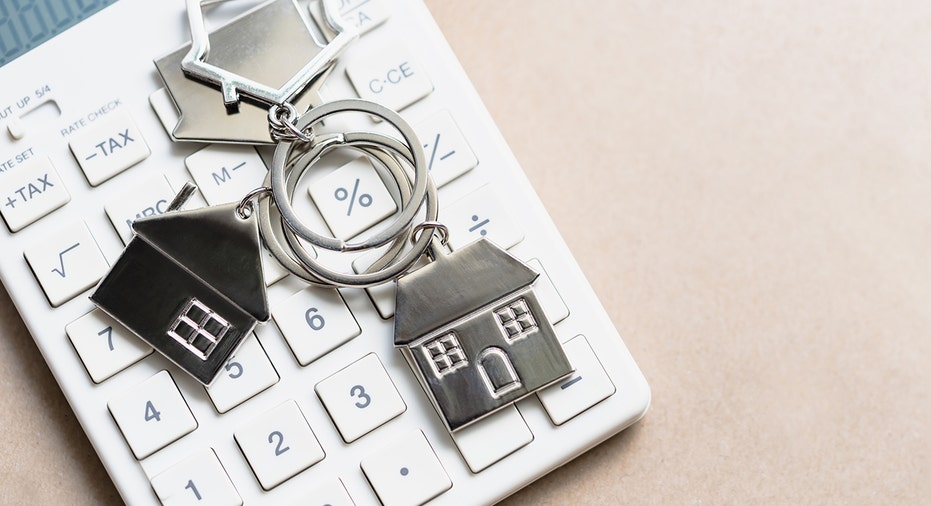3 reasons to refinance into a 15-year mortgage right now

Buying a home or looking at a refinance? Here’s why it might be a good time to consider a 15-year mortgage. (iStock)
Home buyers and homeowners seeking lower monthly payments are in luck — current mortgage and refinance rates are at historic lows. With lower rates, you can save money (potentially thousands over the life of your loan) on your mortgage. While 30- and 20-year mortgages are popular, a shorter loan term like a 15-year mortgage could save you even more.
If you're considering refinancing into a shorter loan, just note that monthly payments will be higher. However, switching from a 30-year mortgage loan to a 15-year one can actually lead to better interest rates. Head over to Credible to find the best mortgage refinancing rates today.
Use an online mortgage refinance calculator to determine the difference between your current mortgage and potential new monthly payments. When you refinance your mortgage, your lender will replace your old home loan with a new one. This new loan may come with additional fees. Most lenders require at least 20% equity in the property before approving a refinance.
If you’re on the fence, here are three top reasons to switch to a 15-year mortgage immediately.
- Record-low interest rates
- Pending "adverse market" fee
- Earn equity faster
1. Record-low interest rates
Interest rates are lower this year because of the coronavirus pandemic. In March, the Federal Reserve reduced interest rates to near 0% to encourage consumer spending. In September, the Fed suggested they would continue to keep rates low through 2023.
While all homeowners could save money by refinancing, opting for a 15-year mortgage over a 30-year mortgage could save even more money. Take advantage of today's lower rates with a mortgage refinance. Credible can show you recent trends with 15-year fixed rates and help you get prequalified rates within just minutes after filling out some simple information.
HOW TO GET THE BEST MORTGAGE REFINANCE RATES
Today's mortgage and refinance rates
Here's how average 30-year and 15-year interest rates currently compare, per Freddie Mac as of October 29:
- 30-year fixed-rate mortgage: 2.81% (down almost a full percent from last year)
- 15-year fixed-rate mortgage: 2.32% (down nearly a full percent from last year)
How much money do you save with a 15-year mortgage?
Let’s look at a hypothetical homeowner to see what savings would look like if a homeowner refinanced from a 30-year fixed-rate mortgage at 4% to a 15-year fixed-rate mortgage at 2.32%.
If the homeowner took out a $300,000 home at 4% interest per our example above, they would pay $1,432 per month and a total of $515,609 ($215,609 in interest).
If the homeowner refinances that $300,000 loan at 2.32% for 15 years, their new payment would be $1,975 per month, and they would pay a total of $355,509 ($55,509). That’s a savings of $160,100.
This example doesn’t consider that the homeowner would likely already owe less than the original balance, reducing the total monthly payment accordingly.
As you consider refinancing your mortgage, make sure to visit Credible to compare rates and lenders in one spot. Doing your research ahead of time saves money and time.
HOW TO REFINANCE YOUR MORTGAGE
2. Pending “adverse market” fee
If you need an additional incentive, you could save even more money by refinancing before the end of the year. The Federal Housing Finance Agency announced a new adverse market fee set to start on December 1, 2020.
The fee applies to loans over $125,000. The FHFA instituted the loan to “cover projected COVID-19 losses of at least $6 billion at the Enterprises,” according to a release from the FHFA. The fee will total 0.5% of the total loan.
For example, homeowners refinancing a $250,000 loan can expect an additional fee of $1,250, which may be rolled into the refinance. This fee only applies to FHA loans.
If you want to avoid the additional fee, you should begin your application soon, as it can take several weeks to process a refinance due to increase interest. Make sure to check out Credible to see different loan options from multiple lenders with fewer forms to fill out.
WHY IT'S A GOOD IDEA TO REFINANCE YOUR MORTGAGE WHILE RATES ARE LOW
3. Earn equity faster
One perk of opting for a 15-year fixed loan term is that you build equity in your home faster. Building equity quickly is beneficial if you anticipate that you won’t be in the house for the next 30 years and you’ll earn more profit from the sale
If you stay in the home, paying the mortgage off quicker will likely eliminate your largest monthly payment faster, allowing you to set aside more money for retirement and other expenses. Paying your home off before retirement will offer some peace of mind as well. If you own the property outright, you have the option to tap into the equity to cover unexpected expenses in the future.
Credible can help you compare mortgage lenders and save money on your monthly payments and beyond with their online tools. Checking personalized rates only takes three minutes and doesn't impact your credit score.
HOW TO LAND THE BEST MORTGAGE AND REFINANCE RATES
Should I refinance into a shorter loan term?
Shorter loan terms are not for everyone. In fact, Freddie Mac noted that 90% of Americans chose a 30-year fixed-rate loan. A shorter-term loan offers numerous benefits, but the higher payment can be difficult for homeowners to cover, especially if they run into financial trouble.
But if you are financially stable and have the means to switch to a 15-year mortgage, then it could save you more money in the end — per the reasons listed above. Make sure to consider your financial situation to determine if you can afford the higher monthly payments.
Don’t forget to visit Credible to get in touch with experienced loan officers who can answer any of your mortgage questions.




















